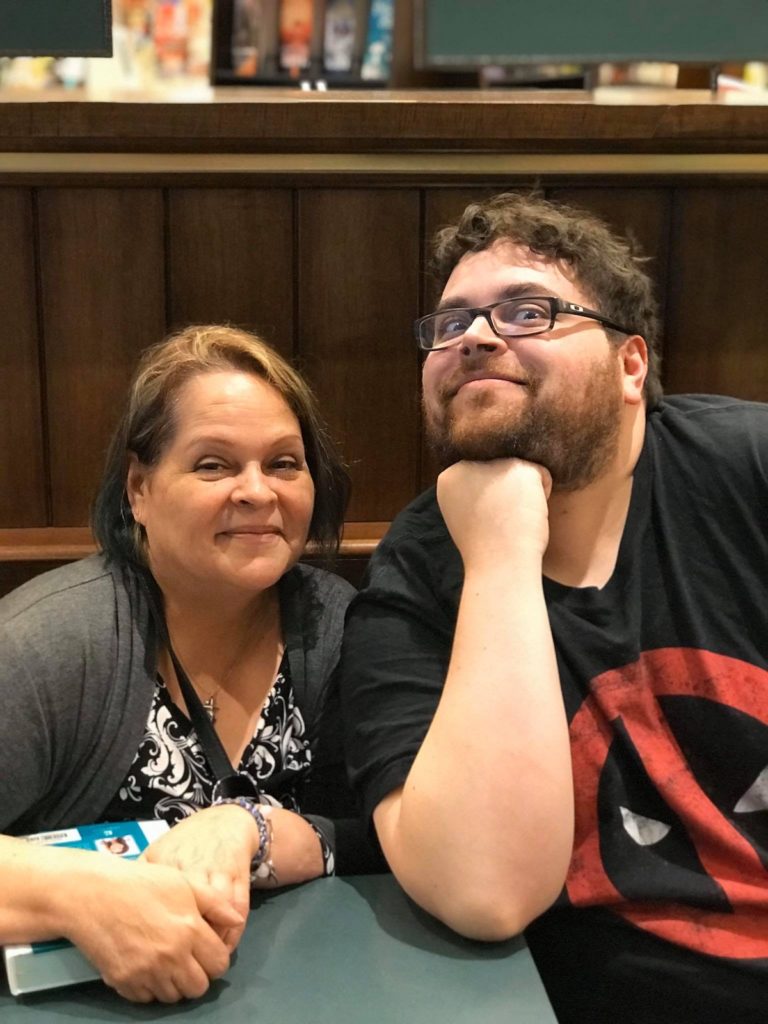One morning in March 2018, Alex Ortiz woke up and couldn’t move his body.
“I was completely paralyzed on the left side of my body,” said Ortiz, now 37. Stubborn, he didn’t go to the doctor for five days, when he finally accepted the paralysis wasn’t seeming to subside on its own.
Ortiz would soon learn he had multiple sclerosis (MS), a disease that affects the brain and spinal cord. While symptoms range from person to person, common consequences of MS include fatigue, bladder and bowel problems, decreased sexual function, decreased vision, cognitive problems and depression, as well as muscular degeneration. There is no cure for MS, however, research suggests exercise can help reduce MS symptoms and keep those suffering from the disease generally stronger and healthier (1).
Upon diagnosis, Ortiz was hospitalized for three months, as he worked to regain the ability to move properly.
The incident was enough to convince Ortiz he needed to take his health seriously. At the time, Ortiz was overweight. At his heaviest, he weighed 373 lb. at five-foot-nine.

“I had always been overweight for as long as I can remember. I wasn’t a terrible child, but my mom was a single mom, so giving me something to eat was an easy way to get me to shut up,” joked Ortiz, who also suffered from asthma. “And my mom worried all the time, so that pushed me into staying inside to play video games or on the computer.”
Ortiz committed himself to changing his diet.
“I just became more conscious of what I was eating, not just in terms of calories in, calories out, but I realized that the quality of food also matters,” he said. Focusing on this helped him drop 50 lb. in a few short months.
The next step was to introduce fitness into his life, he explained.
“I had lost 50 lb. and knew I needed some physicality, and I remember how annoying my friend had been talking about CrossFit all the time, and I thought, ‘Maybe I should try it,’” he said, admitting he wasn’t immediately sold on the idea of CrossFit.
“So I called up the closest gym I could find because I thought proximity would be important for me not to make excuses not to go,” Ortiz said of why he chose CrossFit Zanshin in Peachtree Corners, Georgia.

Still, he wasn’t sure this CrossFit thing was right for him.
“Even Pete (Mongeau, the gym’s owner) later told me that he wasn’t sure I was going to last at the gym,” Ortiz said.
What allowed Ortiz to prove both himself and Mongeau wrong was that his reason to want to change his lifestyle was stronger than his desire to make excuses, he explained.
“I didn’t want to end up in the hospital again. I wanted to be healthy,” he said.
So Ortiz showed up, day after day, and put 100 percent of his trust in his coaches.
“When I first started going, Pete came in and told me he wanted me to start riding the Assault bike the moment I get there until the class starts. And I was like, ‘But sometimes I’m here really early.’ And he says, ‘Well then that’s how long you’re going to ride the bike,’” Ortiz said.
He added: “He told me later that the whole point of doing that was to see if I’d follow his instructions. And at the same time, it helped my conditioning a lot.”
Before he knew it, going to the gym started to become a normal routine for Ortiz. CrossFit was something he not just tolerated, but actually enjoyed.
The result: Sixteen months since Ortiz first walked through the doors last CrossFit Zanshin, and following a diet that fluctuates between Paleo and Ketogenic, Ortiz is down a total of 140 lb. from his all-time high. Today, he weighs 200 lb.
He can do push-ups and kipping pull-ups and sit-ups for the first time in his life. His flexibility has improved, as has his capacity to run and breathe.

“And my asthma has gone away completely, and I even feel like my cognitive ability has much improved,” he added.
Further, whether related to improved fitness and diet or not, Ortiz also hasn’t experienced any major MS-related events since he was first diagnosed and hospitalized.
“Here and there I get a kind of involuntary shake on the left side of my body, but not very often,” he said. When this occurs, he said he dials in his diet to be more Ketogenic, and the shake goes away.
Not only has Ortiz changed his entire lifestyle in the last two years, he said he also has a new, better perspective on life.
“When something like this happens, you just start to rethink things. I have reprioritized things in my life. I see my family more. I just make better decisions, like, ‘Do I really need to watch that episode of The Office, or should I go check out a new park that I’ve never been to?’” he said.
More often than not, Ortiz chooses a walk in the park. And he leaves feeling more alive than ever.
“Why live when you’re not living? That’s the place I got to. I definitely wasn’t living before. Definitely not,” he said.
He added: “Now I feel like I’m peeling away the layers of complexity in life little by little and am moving in the right direction.”
References
1. Barbara S. Giesser, Exercise in the management of persons with multiple sclerosis. Therapeutic Advances in Neurological Disorders. 2015